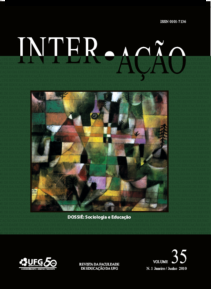ON MAX WEBER : THOUGHTS FOR A DISCUSSION ON THE NEUTRALITY OF TEACHING IN THIRD LEVEL EDUCATION
DOI:
https://doi.org/10.5216/ia.v35i1.13147Keywords:
Max Weber, Neutralidade, Professor universitárioAbstract
This article aims to discuss the characteristics of teaching practice in third level education and the possibility of neutral action. To do so, it presents two concepts from the work of the German sociologist Max Weber (1864-1920): his general sociology, based on the concept of “interpretive understanding”, and his “methodological individualism”. Based on this, Weber’s text “Science as a Vocation” is analyzed. In this text the author dialogues with the reality of the Germany of that time and outlines the profile of learning in general and that of university teachers, comparing Germany with the United States. This study goes on to state that knowledge of Weber’s principles could be of help in a critique of neutrality in teaching.Downloads
Downloads
Published
How to Cite
Issue
Section
License
Inter-Ação uses the Creative Commons Attribution 4.0 License for Open Access Journals (Open Archives Initiative - OAI) as the basis for the transfer of rights. Open access means making documents available on the Internet free of charge, so that users can read, download, copy, distribute, print, search, or link to the full text of documents, process them for indexing, use them as input data for software programs, or use them for any other lawful purpose, without financial, legal, or technical barriers.
Authors publishing in this journal agree to the following conditions:
1) Authors retain copyright and grant the journal the right of first publication, with the work simultaneously licensed under the Creative Commons Attribution License, which permits redistribution of the work with attribution and first publication in this journal.
2) Authors are permitted to enter into additional, separate agreements for non-exclusive distribution of the version of the work published in this journal (e.g., for publication in an institutional repository or as a book chapter), with attribution and first publication in this journal.
3) Authors are permitted and encouraged to publish and distribute their work online (e.g. in institutional repositories or on their home page) at any time before or during the editorial process, as this may generate productive changes as well as increase the impact and citation of the published work.















